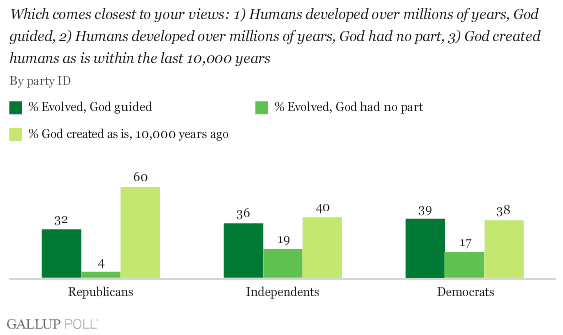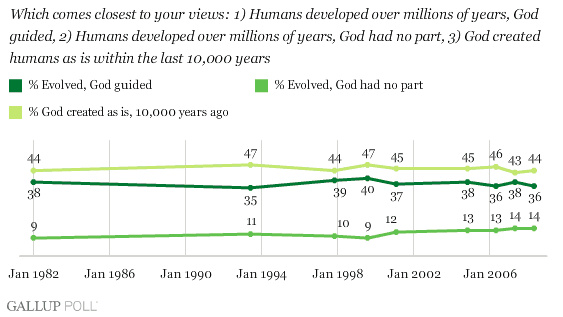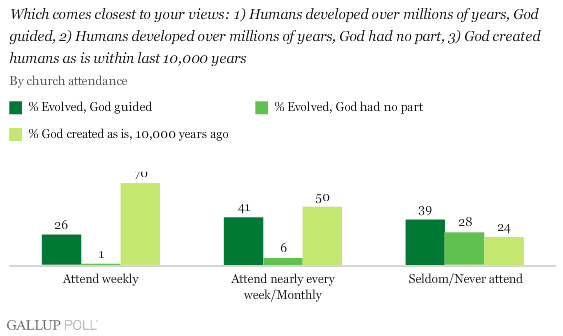 Doctorow's brilliant essay --The Unfeeling President --appeared originally in the September 9th issue of the Easthampton Star. Doctorow could not have known then that Dennis Kucinich, having introduced some 35 articles of impoeachment, would now say of our 'unfeeling' President: "There has been a breach of faith between the Commander in Chief and the troops." There is no denying that the source of Bush's 'unfeeling' is that of an even earlier 'breach of faith' with the American people. One who is morally dead may not feel, may not experience faith. Bush never intended to 'lead' this nation. He intended to destroy it --our Constitution, our heritage, our most cherished traditions, indeed, our lives. Our nation's Constitution, called a 'goddamned piece of paper', is derived from the ancient, venerable notion that the legitimacy of government is its contract with the people. Contracts not supported by faith are not worth the paper they are written on. Bush had in mind his subversion of our charter when in a temper tantrum he screamed the nine words that alone should have impeached and removed him from office: "The Constitution is just a goddamned piece of paper!" The following brilliant and insightful essay by novelist E.L. Doctorow appeared in the Sept. 9 edition of the Easthampton Star.
Doctorow's brilliant essay --The Unfeeling President --appeared originally in the September 9th issue of the Easthampton Star. Doctorow could not have known then that Dennis Kucinich, having introduced some 35 articles of impoeachment, would now say of our 'unfeeling' President: "There has been a breach of faith between the Commander in Chief and the troops." There is no denying that the source of Bush's 'unfeeling' is that of an even earlier 'breach of faith' with the American people. One who is morally dead may not feel, may not experience faith. Bush never intended to 'lead' this nation. He intended to destroy it --our Constitution, our heritage, our most cherished traditions, indeed, our lives. Our nation's Constitution, called a 'goddamned piece of paper', is derived from the ancient, venerable notion that the legitimacy of government is its contract with the people. Contracts not supported by faith are not worth the paper they are written on. Bush had in mind his subversion of our charter when in a temper tantrum he screamed the nine words that alone should have impeached and removed him from office: "The Constitution is just a goddamned piece of paper!" The following brilliant and insightful essay by novelist E.L. Doctorow appeared in the Sept. 9 edition of the Easthampton Star. I fault this president for not knowing what death is. He does not suffer the death of our twenty-one-year-olds who wanted to be what they could be.On the eve of D-day in 1944, General Eisenhower prayed to God for the lives of the young soldiers he knew were going to die. He knew what death was. Even in a justifiable war, a war not of choice but of necessity, a war of survival, the cost was almost more than Eisenhower could bear.
 But this president does not know what death is. He hasn't the mind for it. You see him joking with the press, peering under the table for the WMDs he can't seem to find, you see him at rallies strutting up to the stage in shirt sleeves to the roar of the carefully screened crowd, smiling and waving, triumphal, a he-man. He does not mourn. He doesn't understand why he should mourn. He is satisfied during the course of a speech written for him to look solemn for a moment and speak of the brave young Americans who made the ultimate sacrifice for their country. But you study him, you look into his eyes and know he dissembles an emotion which he does not feel in the depths of his being because he has no capacity for it. He does not feel a personal responsibility for the thousand dead young men and women who wanted be what they could be. They come to his desk not as youngsters with mothers and fathers or wives and children who will suffer to the end of their days a terribly torn fabric of familial relationships and the inconsolable remembrance of aborted life; they come to his desk as a political liability, which is why the press is not permitted to photograph the arrival of their coffins from Iraq.How then can he mourn? To mourn is to express regret and he regrets nothing. He does not regret that his reason for going to war was, as he knew, unsubstantiated by the facts. He does not regret that his bungled plan for the war's aftermath has made of his mission-accomplished a disaster. He does not regret that rather than controlling terrorism his war in Iraq has licensed it. So he never mourns for the dead and crippled youngsters who have fought this war of his choice. He wanted to go to war and he did. He had not the mind to perceive the costs of war, or to listen to those who knew those costs. He did not understand that you do not go to war when it is one of the options but when it is the only option; you go not because you want to but because you must.Yet this president knew it would be difficult for Americans not to cheer the overthrow of a foreign dictator. He knew that much. This president and his supporters would seem to have a mind for only one thing -- to take power, to remain in power, and to use that power for the sake of themselves and their friends. A war will do that as well as anything. You become a wartime leader. The country gets behind you. Dissent becomes inappropriate. And so he does not drop to his knees, he is not contrite, he does not sit in the church with the grieving parents and wives and children. He is the President who does not feel.But he will dissemble feeling. A litany of lies he will versify with reverences for God and the flag and democracy, when just what he and his party are doing to our democracy is choking the life out of it.There is one more terribly sad thing about all of this. I remember when millions of people around the world marched against the war. It was extraordinary, that spontaneous aroused oversoul of alarm and protest that transcended national borders. Why did it happen? After all, this was not the only war anyone had ever seen coming. There are little wars all over the world most of the time. But the cry of protest was the appalled understanding of millions of people that America was ceding its role as the last best hope of mankind. It was their perception that the classic archetype of democracy was morphing into a rogue nation. The greatest democratic republic in history was turning its back on the future, using its extraordinary power and standing not to advance the ideal of a concordance of civilizations but to endorse the kind of tribal combat that originated with the Neanderthals, a people, now extinct, who could imagine ensuring their survival by no other means than pre-emptive war.The president we get is the country we get. With each president the nation is conformed spiritually. He is the artificer of our malleable national soul. He proposes not only the laws but the kinds of lawlessness that govern our lives and invoke our responses. The people he appoints are cast in his image. The trouble they get into, and get us into, is his characteristic trouble. Finally, the media amplify his character into our moral weather report: he becomes the face of our sky, the conditions that prevail.How can we sustain ourselves as the United States of America, given the stupid and ineffective warmaking, the constitutionally insensitive lawgiving, and the monarchal economics of this president? He cannot mourn, but is a figure of such moral vacancy as to make us mourn for ourselves.--The Unfeeling President, E.L. Doctorow
But this president does not know what death is. He hasn't the mind for it. You see him joking with the press, peering under the table for the WMDs he can't seem to find, you see him at rallies strutting up to the stage in shirt sleeves to the roar of the carefully screened crowd, smiling and waving, triumphal, a he-man. He does not mourn. He doesn't understand why he should mourn. He is satisfied during the course of a speech written for him to look solemn for a moment and speak of the brave young Americans who made the ultimate sacrifice for their country. But you study him, you look into his eyes and know he dissembles an emotion which he does not feel in the depths of his being because he has no capacity for it. He does not feel a personal responsibility for the thousand dead young men and women who wanted be what they could be. They come to his desk not as youngsters with mothers and fathers or wives and children who will suffer to the end of their days a terribly torn fabric of familial relationships and the inconsolable remembrance of aborted life; they come to his desk as a political liability, which is why the press is not permitted to photograph the arrival of their coffins from Iraq.How then can he mourn? To mourn is to express regret and he regrets nothing. He does not regret that his reason for going to war was, as he knew, unsubstantiated by the facts. He does not regret that his bungled plan for the war's aftermath has made of his mission-accomplished a disaster. He does not regret that rather than controlling terrorism his war in Iraq has licensed it. So he never mourns for the dead and crippled youngsters who have fought this war of his choice. He wanted to go to war and he did. He had not the mind to perceive the costs of war, or to listen to those who knew those costs. He did not understand that you do not go to war when it is one of the options but when it is the only option; you go not because you want to but because you must.Yet this president knew it would be difficult for Americans not to cheer the overthrow of a foreign dictator. He knew that much. This president and his supporters would seem to have a mind for only one thing -- to take power, to remain in power, and to use that power for the sake of themselves and their friends. A war will do that as well as anything. You become a wartime leader. The country gets behind you. Dissent becomes inappropriate. And so he does not drop to his knees, he is not contrite, he does not sit in the church with the grieving parents and wives and children. He is the President who does not feel.But he will dissemble feeling. A litany of lies he will versify with reverences for God and the flag and democracy, when just what he and his party are doing to our democracy is choking the life out of it.There is one more terribly sad thing about all of this. I remember when millions of people around the world marched against the war. It was extraordinary, that spontaneous aroused oversoul of alarm and protest that transcended national borders. Why did it happen? After all, this was not the only war anyone had ever seen coming. There are little wars all over the world most of the time. But the cry of protest was the appalled understanding of millions of people that America was ceding its role as the last best hope of mankind. It was their perception that the classic archetype of democracy was morphing into a rogue nation. The greatest democratic republic in history was turning its back on the future, using its extraordinary power and standing not to advance the ideal of a concordance of civilizations but to endorse the kind of tribal combat that originated with the Neanderthals, a people, now extinct, who could imagine ensuring their survival by no other means than pre-emptive war.The president we get is the country we get. With each president the nation is conformed spiritually. He is the artificer of our malleable national soul. He proposes not only the laws but the kinds of lawlessness that govern our lives and invoke our responses. The people he appoints are cast in his image. The trouble they get into, and get us into, is his characteristic trouble. Finally, the media amplify his character into our moral weather report: he becomes the face of our sky, the conditions that prevail.How can we sustain ourselves as the United States of America, given the stupid and ineffective warmaking, the constitutionally insensitive lawgiving, and the monarchal economics of this president? He cannot mourn, but is a figure of such moral vacancy as to make us mourn for ourselves.--The Unfeeling President, E.L. DoctorowNamed for Edgar Allan Poe, Edgar Lawrence Doctorow occupies a central position in the history of American literature. On a shortlist that might also include Philip Roth, Toni Morrison, John Updike, Saul Bellow, and Don DeLillo, E. L. Doctorow is generally considered to be among the most talented, ambitious, and admired novelists of the second half of the twentieth century. Long celebrated for his vivid evocations of nineteenth- and twentieth-century American life (particularly New York life), Doctorow has received the National Book Award, two National Book Critics Circle Awards, the PEN/Faulkner Award, the Edith Wharton Citation for Fiction, the William Dean Howell Medal of the American Academy of Arts and Letters, and the presidentially conferred National Humanities Medal.
Doctorow was born in New York City on January 6, 1931, and, like the novelist Everett in City of God, attended the Bronx High School of Science. After graduating with honors from Kenyon College in 1952, he did graduate work at Columbia University and served in the U.S. Army, which stationed him in Germany. In 1954, he married Helen Setzer. They have three children. Doctorow was senior editor for New American Library from 1959 to 1964 and then served as editor in chief at Dial Press until 1969. Since then, he has devoted his time to writing and teaching. He holds the Glucksman Chair in American Letters at New York University and over the years has taught at several institutions, including Yale University Drama School, Princeton University, Sarah Lawrence College, and the University of California, Irvine.
With The Book of Daniel, his third novel, Doctorow emerged as an important American novelist with a strongly political bent. A fictional retelling of the notorious Rosenberg spy case, the novel deftly evokes the complex anxieties of Cold War America, shuttling back and forth in time from the 1950s, when Paul and Roselle Isaacson are convicted and electrocuted, to the late 1960s, when their troubled son, Daniel, a grad student at Columbia, must deal with the consequences of his unusual birthright. The Book of Daniel was adapted in 1983 into the film, Daniel, starring Timothy Hutton and directed by Sidney Lumet. Four years after The Book of Daniel came Ragtime, a dazzling reimagining of the United States at the dawn of the twentieth century by means of a plot that, like City of God, ingeniously brings together real-life figures—such as Henry Ford, J. P. Morgan, Harry Houdini, and Emma Goldman—with an array of invented characters. Ragtime was named one of the 100 best English-language novels of the twentieth century by the editorial board of the Modern Library and was adapted into a successful Broadway musical in 1998. The March was published in 2005.
Widely acclaimed for the beauty of his prose, his innovative narratives, his feel for atmospherics, and above all for his talent for evoking the past in a way that makes it at once mysterious and familiar, Doctorow has created one of the most substantial bodies of work of any living American writer. --Biography of E.L. Doctorow
- Bush's Conspiracy to Create an American Police State: Part I, Police States Begin With False Flag Attacks
- Bush's Conspiracy to Create an American Police State: Part II, Police States Begin With False Flag Attacks
- Bush's Conspiracy to Create an American Police State: Part III, In Fascist Dictatorships Telling the truth becomes a crime
- Bush's Conspiracy to Create an American Police State: Part IV, the state forces an 'existential' choice
- Bush's Conspiracy to Create an American Police State: Part V, Public Opinion Becomes Irrelevant
- Bush's Conspiracy to Create an American Police State: Part VI, The government places itself above the law
- Bush's Conspiracy to Create an American Police State: Part VII, The Government Denies 'Due Process of Law'
- Bush's Conspiracy to Create an American Police State Part VIII: Atrocities are justified with lies, myths or propaganda








